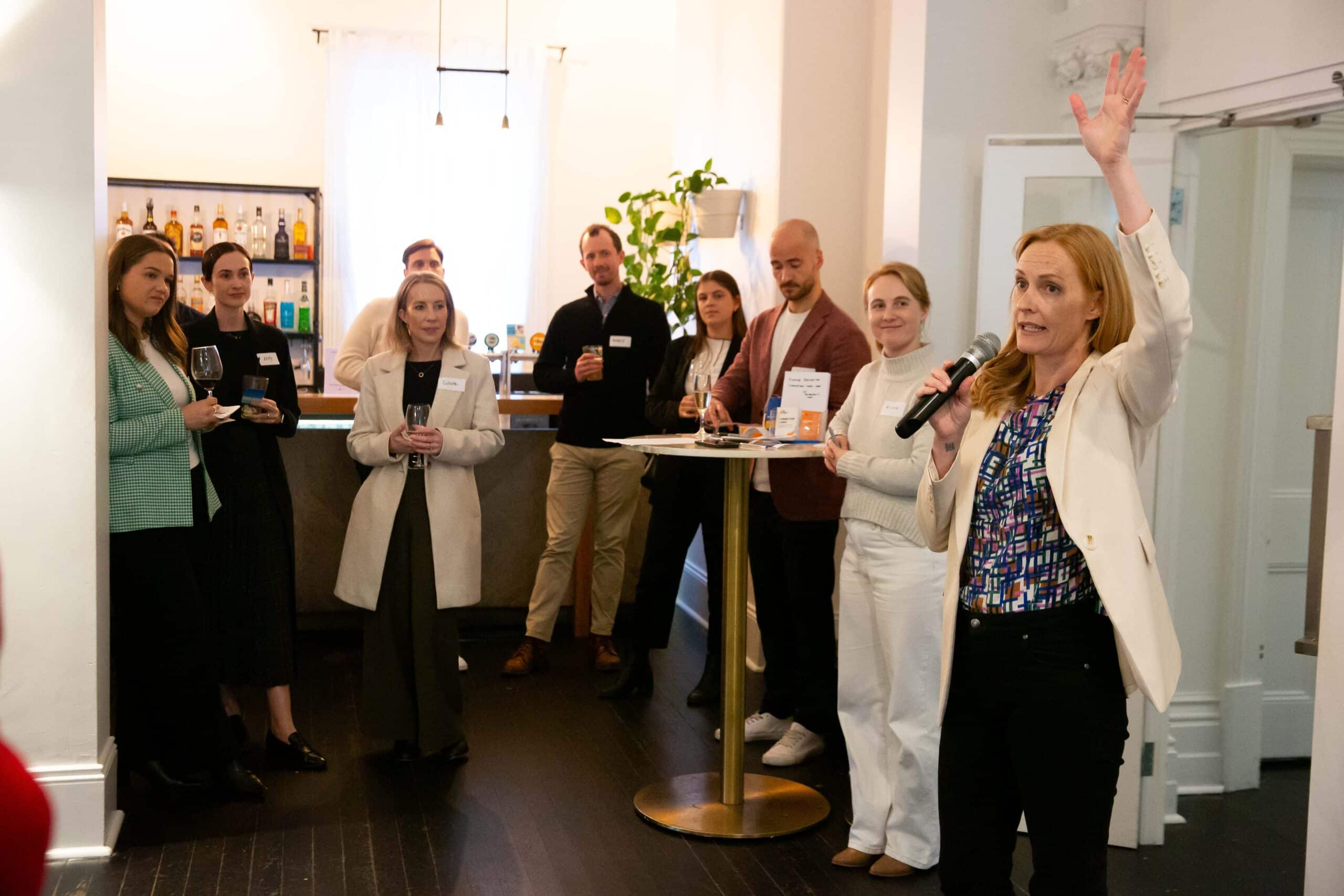Why empathy is more than a “soft skill”
As a former managing director a few times over and CEO, I’ve never understood why empathy has been referred to as a soft skill. That’s like saying that loyalty, love, compassion, connection, and care are soft skills too. Yet anybody who knows an organisation or team that has been successful and performed brilliantly knows they have more of these skills than not.
Soft skills have historically been associated with more “feminine” styles of leadership and have sometimes been treated as less effective in business. However, I think we can all agree that the days of an autocratic style of ‘command and control’ leadership lead only to unhappy campers and diminished returns on human capital.
We need empathy because without it we are unable to connect, and if we are unable to connect, we cannot collaborate or resolve conflict. In the world right now—more than ever—we really need an abundance of empathy if we are going to succeed together and not fracture apart.
Leading through uncertainty requires empathy
If I had to pick a song for now, it would be Bob Dylan’s The Times They Are a-Changin’.
With all this uncertainty—fractious politics, infighting across governments, disrupted supply chains, and never-ending economic doom and gloom—life feels a bit like a seriously un-fun game of whack-a-mole. Decisions change daily; cost-of-living pressures keep rising; and the compounded effects are exhausting, stripping us of motivation, increasing stress levels, and putting us at risk of burnout or languishing.
Businesses need to mitigate risk and protect their people more than ever. Leaders know they must stay agile, resilient, and compassionate if they are to keep their teams connected and get results. So, how can leaders provide clarity and calm when everything feels volatile? How can they avoid their teams burning out, disengaging, or languishing?
There is a superpower in all of us that is often underestimated: empathy.
Empathy as a strategic leadership tool
Contrary to the traditional view of empathy as merely a “soft skill,” it’s time we recognise it as a potent leadership tool—one capable of transforming workplace cultures from the ground up.
Daniel Murray, CEO of Empathic Consulting, in his insightful book The Empathy Gap, argues that empathy is not just beneficial but essential for leaders navigating the complex landscapes of modern organisations.
Lessons from my leadership career
In my days of running advertising agencies in London—and later in Australia, where I became one of the few female CEOs running Jenny Craig—managing over 600 staff across 100+ locations, I learned that the only way teams could stay connected and aligned was if they had a leader who could authentically demonstrate empathy.
Testing for empathy in recruitment
I had several ways of testing for empathy before hiring people. In the late ’90s in London advertising, we hired graduates from Oxford and Cambridge who were ridiculously qualified—and tough to get. On interview days, despite being the managing director, I would position myself as the receptionist at the front of the office and observe interactions before candidates got any further.
It was amazing how many graduates walked in, thrust their coat in my direction to hang without so much as a “good morning,” only to later realise that the “receptionist” they’d ignored was the same person interviewing them.
Later at Jenny Craig, I used group interviews to spot empathy and energy. I’d ask each candidate to share a time they had screwed up and how it felt. I wasn’t only listening to the speaker—I was watching the faces of the others in the group to see who showed genuine empathy for their peer.
Why empathy made the difference in performance
I used to point out to my centre leaders at Jenny Craig: you all have the same four walls, the same program, the same food, and the same support—yet some centres were more successful than others. The difference was always empathy.
Some locations experienced constant staff turnover, conflict, and instability. Others built happy, stable teams and long-term client relationships, achieving outstanding results.
Empathy in tough times
Empathy is not a soft skill; it is a superpower, and it’s most important during tough times. Delivering hard decisions or changes with empathy is the difference between people staying connected and working together—or fracturing into disengagement and victimhood.
Without clarity comes confusion and conflict. In the words of Brené Brown, “Clarity is kind.” But how clarity is delivered is what counts. Communication without empathy or humanity can damage trust and morale.
What other leaders say about empathy
Several business leaders have echoed the sentiment that empathy, coupled with effective communication, is the cornerstone of thriving teams:
-
Satya Nadella, CEO of Microsoft: “Empathy is the foundation of all great leadership.”
-
Indra Nooyi, former CEO of PepsiCo: “If you have to pick one quality, I would pick empathy.”
-
Marc Benioff, CEO of Salesforce: “The business of business is improving the state of the world… through empathy.”
The measurable impact of empathy on business success
Empathy isn’t just about feeling—it’s about strategic decision-making. Leaders who respond rather than react bring consciousness to decisions and respect the emotional context of their teams. This leads to:
-
Happier teams: Employees who feel understood are more engaged and committed.
-
Better retention: Empathy reduces turnover by making employees feel valued.
-
Increased productivity: Open, empathetic communication fosters collaboration.
-
Innovation and growth: A culture of empathy encourages risk-taking and creativity.
Final thoughts: empathy as a leadership imperative
Empathy should be at the forefront of leadership training and central to development strategies. It’s not just about being nice—it’s about being smart, strategic, and profoundly human.
Recognising empathy not as a soft skill, but as a leadership superpower, can create more resilient, innovative, and compassionate workplaces—places where conflict becomes collaboration, and challenges become opportunities for growth.
Author: Amy Smith – Chief Transformation Officer at Be Well Co
Want to Read More?
 Wellbeing
Wellbeing
Do we need to rethink how we think about mental health?
We often treat mental health and mental illness as opposites. If you are not mentally ill, you must be mentally well. If you are struggling, wellbeing must be low. Research suggests it is not… 03 Mar 2026 3 min read Wellbeing, Workplace
Wellbeing, Workplace
Creating psychologically safe teams
Why Psychological Safety matters and how we build it together Based on Be Well Co’s “Psychological Safety for leaders” workshop Psychological safety has become one of the most important foundations of healthy, high-performing teams…. 18 Nov 2025 Wellbeing, Workplace
Wellbeing, Workplace



